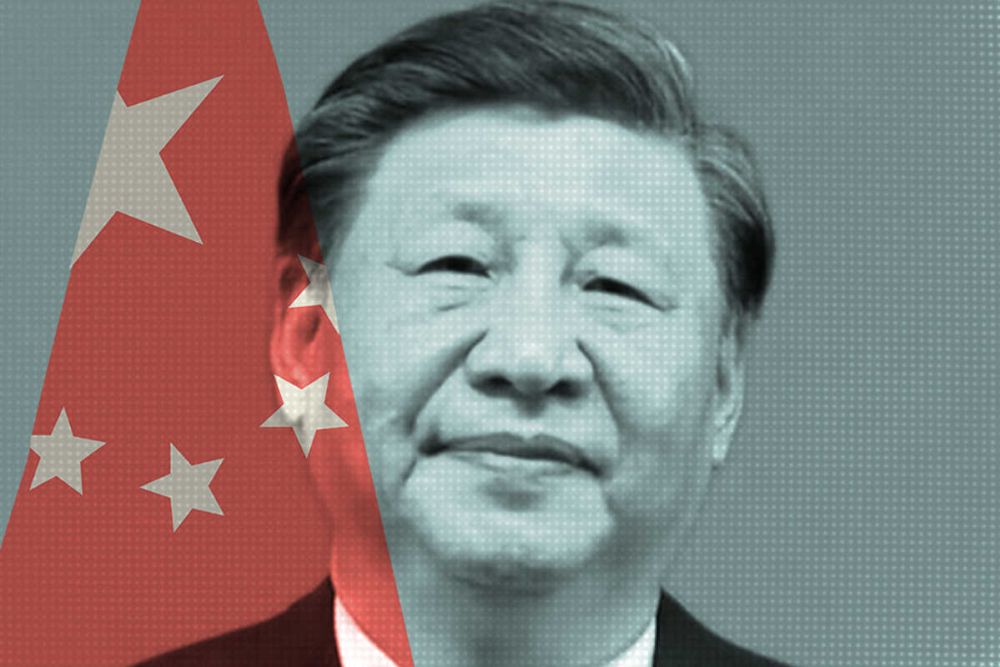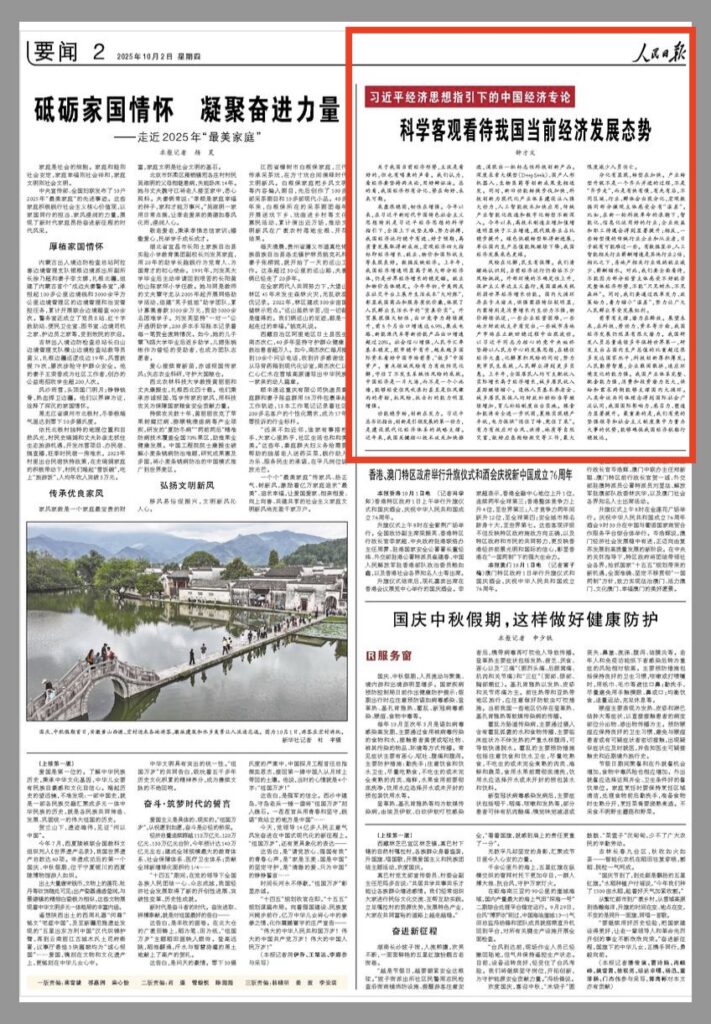
When it comes to China’s economy, the future has never been brighter. That is the point forcefully made this month by a series of eight commentaries published in the official People’s Daily, which repeatedly stress that “to believe in China is to believe in tomorrow.” The articles were written by Zhong Caiwen (钟才文), a very prominent economic expert that no one on earth has ever heard of — because, of course, he does not exist.
Zhong Caiwen is a pen-name for a collaboration between writing groups at both the Central Propaganda Department (中宣部) and the Central Financial and Economic Affairs Commission (中央财经委员会), the bodies within the Chinese Communist Party that are responsible for political messaging and supervision of the financial system respectively. Such homophonous pen names are common in Party-state media, allowing powerful departments to voice official positions while signaling their authority to other Party insiders.
| Pen Name | Romanization | What It Represents |
|---|---|---|
| 钟才文 | Zhong Caiwen | Central Financial and Economic Affairs Commission commentary |
| 任仲平 | Ren Zhongping | People’s Daily Important Commentary (homophone: 人民日报重要评论) |
| 国纪平 | Guo Jiping | Important Commentary on International Affairs |
| 钟声 | Zhong Sheng | China’s Voice on international affairs (homophone: 中国之声) |
| 仲祖文 | Zhong Zuwen | Central Organization Department article |
| 钟轩理 | Zhong Xuanli | Central Propaganda Department Theory Bureau commentary |
| 钟华论 | Zhong Hualun | Xinhua News Agency leadership commentary |
| 钟纪轩 | Zhong Jixuan | Central Commission for Discipline Inspection propaganda |
| 钟政轩 | Zhong Zhengxuan | Central Political and Legal Affairs Commission commentary |
| 何振华 | He Zhenhua | “How to Revitalize China” commentaries (homophone: 如何振兴中华) |
| 王兴平 | Wang Xingping | Cyberspace Administration of China (CAC) commentary |
| 皇甫平 | Huangfu Ping | Liberation Daily (Shanghai) collective pen name, used for reform commentaries in 1991-92 |
| 郑青原 | Zheng Qingyuan | “Getting to the Source” – commentaries on political reform (homophone: 正本清源) |
| 宣言 | Xuan Yuan | Central Propaganda Department (homophone: 宣传 “propaganda”) |
| 本报评论员 | Commentator from this Newspaper | Important staff-written piece representing senior leadership views |
Roughly summarized, the series says that thanks to “Xi Jinping Economic Thought” (习近平经济思想) — this being the buzzword under Xi’s self-aggrandizing signature “banner term” dealing with economic policy — China’s economy is seeing steady development and resilience in the face of global turmoil and US tariffs. Through prioritizing innovation, social security and international openness, the two departments say the Party has improved livelihoods, consumption, graduate opportunities, and foreign investment opportunities. The eight-article prelude reads as an extended lecture on keeping faith with “Xi Jinping Economic Thought,” which has been something of a laggard among Xi’s banner term-related formulas as the economy has experienced difficult headwinds internationally.
Clearly, one key point of the series is to gainsay international economic detractors. “Recently,” one article in the series said on October 3, “some voices, both internationally and domestically, have argued that investment and development in China have passed their golden age and that opportunities are dwindling.” But there are hints of grudging admission too. On October 2, another article confessed that “prices remain sluggish,” businesses were seeing difficulties, and that domestic demand was “weak.”

The timing of the series also matters. It arrives just weeks ahead of the Fourth Plenum of the CCP’s Central Committee, scheduled for October 20-23, which will set the groundwork for China’s 15th Five-Year Plan covering 2026-2030. These plenary sessions are pivotal moments in Chinese policymaking and political positioning. Let’s remember: It was the Third Plenum in 1978 that launched “reform and opening up,” and the 2018 Second Plenum that eliminated presidential term limits for Xi. This year’s plenum faces the uncomfortable task of addressing mounting economic pressures, including a 29 percent drop in foreign direct investment and the ongoing impact of tariffs from the United States and the EU.
At base, the series is an attempt to set the tone for the Fourth Plenum before the harder conversations begin.
To this end, the series deploys a familiar tactic of redirection — looking aside from present and persisting problems to make a bigger sell on the future. The October 4 installment of the series says at one point that “China’s future is entirely predictable.” And repeated five times throughout the series is the phrase, borrowed from Xi Jinping’s March remarks to international businesspeople, that “to believe in China is to believe in tomorrow, and to invest in China is to invest in the future” (相信中国就是相信明天,投资中国就是投资未来).
But this bold declaration of confidence, republished by multiple media outlets within China, suffers from a fatal flaw hardwired into how China’s ruling Party continues to communicate even well into the 21st century — a kind of repetition complex. If someone reassures you that everything is just fine, you relax: Good, that’s good to hear. If they say it again, there is a frisson of doubt. And when the reassurance comes a third time, it begins to sound like something other than confidence. You are sure there is much more they are not saying.
Eight definitive declarations of confidence is enough to sow doubt in all but the firmest of believers.

David Bandurski




















